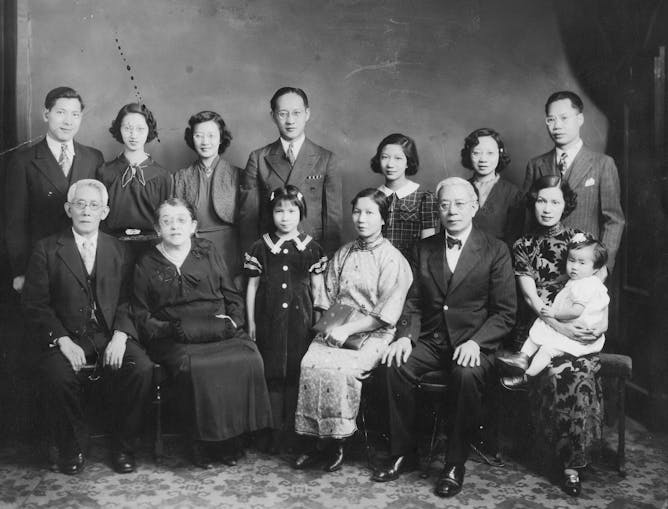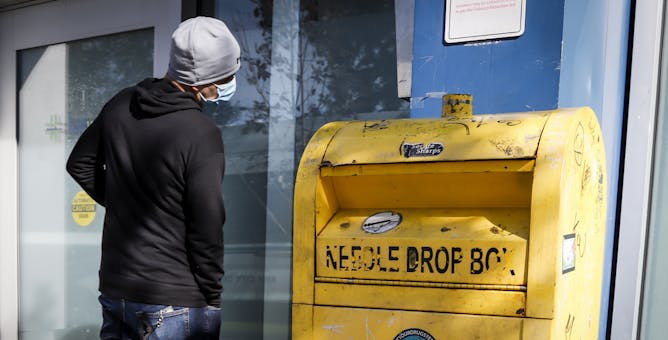|
In this week’s Don’t Call Me Resilient podcast episode, CUNY professor Ava Chin unearths personal family stories from New York’s Chinatown, as she traces the connecting line between today’s violence against Asians in North America and U.S. anti-immigration laws that are more than 100 years old.
In this fascinating conversation, Chin discusses her new book, Mott Street: A Chinese American Family’s Story of Exclusion and Homecoming,whichexplores themes of exclusion as it relates to all Chinese Americans, plus personally for Chin with her father. The book, which has garnered much media attention this month, also showcases the resilience, love lives, dreams and resistance of Chinese immigrants.
As we close out Asian Heritage Month, it’s a great episode to listen to. In our conversation, Ava said: “The decisions that they made back in the 19th century set us on a course as a nation towards viewing all Asians as being foreign and suspicious. And so the great aim of this book is to shed light on Asian American stories and place Asian Americans into our proper space into the larger American story.”
Also today:
All the best.
|

Author Ava Chin’s research led her to a building on Mott Street in NYC’s Chinatown that held many family stories. Ng Doshim family portrait, 1937
Vinita Srivastava, The Conversation
Author Ava Chin, a 5th generation New Yorker, traces the roots of today’s high rates of anti-Asian violence back to 19th century U.S. labour and immigration laws.
|

A man waits to enter a supervised consumption site at a health centre in Calgary, Alta., in August 2021.
THE CANADIAN PRESS/Jeff McIntosh
Tyson Singh Kelsall, Simon Fraser University; Alya Govorchin, Simon Fraser University; Lyana Patrick, Simon Fraser University
Instead of forcing people into substance use treatment, provinces should work with municipalities and health boards to expand life-saving safe use sites and tackle the housing crisis.
|

The Israeli flag has become a contested symbol recently as both anti-government and far-right demonstrators use it to bolster their message.
(AP Photo/Tsafrir Abayov)
Tom Einhorn, University of British Columbia
The Israeli flag has long been associated with the country’s far-right, but anti-government protesters have recently begun using the flag to bolster and legitimize their movement.
|

Wildfire warning signage seen in the Blairmore area, about two hours south of Calgary, Alta., in this handout image provided by the Government of Alberta Fire Service.
THE CANADIAN PRESS
J-C Couture, University of Alberta; Melissa McQueen, University of Alberta
School systems need to wake up from ‘business as usual’ learning. Teachers can draw on terror management theory in their work on the front lines with students navigating the climate crisis.
|

shutterstock.
Brigitte Poirier, École nationale d'administration publique (ENAP); Étienne Charbonneau, École nationale d'administration publique (ENAP); Rémi Boivin, Université de Montréal
Les caméras portatives peuvent assurer une plus grande imputabilité et transparence de la police, mais leurs coûts sont élevés pour les organisations policières, les gouvernements et les contribuables.
|
Podcasts
|
-
Mend Mariwany; Nehal El-Hadi, The Conversation
The conditions placed on countries borrowing money from the International Monetary Fund have further disadvantaged these countries economically.
|
|
Arts
|
-
Gibson Ncube, Stellenbosch University; Adriaan van Klinken, University of Leeds
His books bring north Africa into conversation with sub-Saharan Africa about lived queer experiences.
|
|
Health
|
-
Rocío de la Vega de Carranza, Universidad de Málaga
We have all experienced pain becoming more unbearable at night. The absence of stimuli and the influence of circadian rhythms could explain this phenomenon.
|
|
Politics
|
-
Nonhlanhla Dube, Lancaster University
Three reasons getting the warring parties to stick to an agreement is so difficult.
|
|